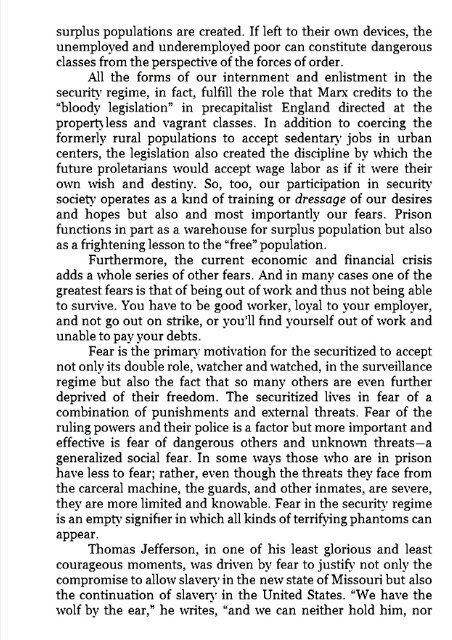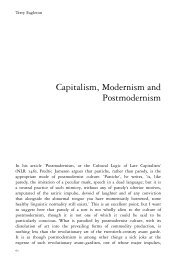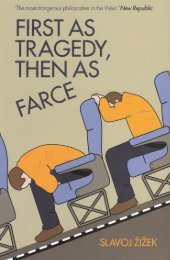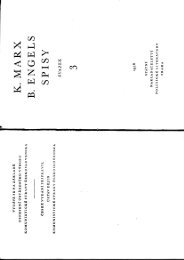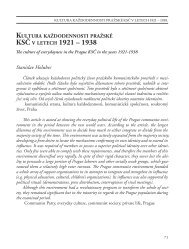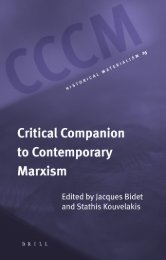Chapter 1: Subjective Figures of the Crisis ... - Negri in English
Chapter 1: Subjective Figures of the Crisis ... - Negri in English
Chapter 1: Subjective Figures of the Crisis ... - Negri in English
You also want an ePaper? Increase the reach of your titles
YUMPU automatically turns print PDFs into web optimized ePapers that Google loves.
surplus populations are created. If left to <strong>the</strong>ir own devices, <strong>the</strong><br />
unemployed and underemployed poor can constitute dangerous<br />
classes from <strong>the</strong> perspective <strong>of</strong> <strong>the</strong> forces <strong>of</strong> order.<br />
All <strong>the</strong> forms <strong>of</strong> our <strong>in</strong>ternment and enlistment <strong>in</strong> <strong>the</strong><br />
security regime, <strong>in</strong> fact, fulfill <strong>the</strong> role that Marx credits to <strong>the</strong><br />
"bloody legislation" <strong>in</strong> precapitalist England directed at <strong>the</strong><br />
property'less and vagrant classes. In addition to coerc<strong>in</strong>g <strong>the</strong><br />
formerly rural populations to accept sedentary' jobs <strong>in</strong> urban<br />
centers, <strong>the</strong> legislation also created <strong>the</strong> discipl<strong>in</strong>e by which <strong>the</strong><br />
future proletarians would accept wage labor as if it were <strong>the</strong>ir<br />
own wish and dest<strong>in</strong>y. So, too, our participation <strong>in</strong> security<br />
society operates as a land <strong>of</strong> tra<strong>in</strong><strong>in</strong>g or dressage <strong>of</strong> our desires<br />
and hopes but also and most importantly our fears. Prison<br />
functions <strong>in</strong> part as a warehouse for surplus population but also<br />
as a frighten<strong>in</strong>g lesson to <strong>the</strong> "free" population.<br />
Fur<strong>the</strong>rmore, <strong>the</strong> current economic and f<strong>in</strong>ancial crisis<br />
adds a whole series <strong>of</strong> o<strong>the</strong>r fears. And <strong>in</strong> many cases one <strong>of</strong> <strong>the</strong><br />
greatest fears is that <strong>of</strong> be<strong>in</strong>g out <strong>of</strong> work and thus not be<strong>in</strong>g able<br />
to survive. You have to be good worker, loyal to your employer,<br />
and not go out on strike, or you'll f<strong>in</strong>d yourself out <strong>of</strong> work and<br />
unable to pay your debts.<br />
Fear is <strong>the</strong> primary' motivation for <strong>the</strong> securitized to accept<br />
not only its double role, watcher and watched, <strong>in</strong> <strong>the</strong> surveillance<br />
regime but also <strong>the</strong> fact that so many o<strong>the</strong>rs are even fur<strong>the</strong>r<br />
deprived <strong>of</strong> <strong>the</strong>ir freedom. The securitized lives <strong>in</strong> fear <strong>of</strong> a<br />
comb<strong>in</strong>ation <strong>of</strong> punishments and external threats. Fear <strong>of</strong> <strong>the</strong><br />
rul<strong>in</strong>g powers and <strong>the</strong>ir police is a factor but more important and<br />
effective is fear <strong>of</strong> dangerous o<strong>the</strong>rs and unknown threats—a<br />
generalized social fear. In some ways those who are <strong>in</strong> prison<br />
have less to fear; ra<strong>the</strong>r, even though <strong>the</strong> threats <strong>the</strong>y face from<br />
<strong>the</strong> carceral mach<strong>in</strong>e, <strong>the</strong> guards, and o<strong>the</strong>r <strong>in</strong>mates, are severe,<br />
<strong>the</strong>y are more limited and knowable. Fear <strong>in</strong> <strong>the</strong> security regime<br />
is an empty signifier <strong>in</strong> which all k<strong>in</strong>ds <strong>of</strong> terrify<strong>in</strong>g phantoms can<br />
appear.<br />
Thomas Jefferson, <strong>in</strong> one <strong>of</strong> his least glorious and least<br />
courageous moments, was driven by fear to justify not only <strong>the</strong><br />
compromise to allow slaver}' <strong>in</strong> <strong>the</strong> new state <strong>of</strong> Missouri but also<br />
<strong>the</strong> cont<strong>in</strong>uation <strong>of</strong> slaver}' <strong>in</strong> <strong>the</strong> United States. "We have <strong>the</strong><br />
wolf by <strong>the</strong> ear," he writes, "and we can nei<strong>the</strong>r hold him, nor


